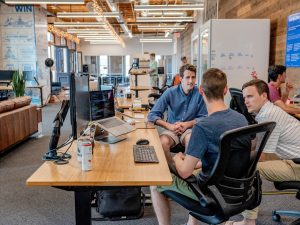It’s obvious that 2020 isn’t anything we’d imagined it to be back when we were setting up our New Year’s resolutions. Just two and a half months into 2020, we came to realize that there’s a really high chance most of the things we had planned for this year will no longer happen. And for many of us, they didn’t.
As local and national quarantine rules were put in place and the pandemic started to set in, so did a glooming uncertainty. Confined to our homes, we were forced to dramatically change our lifestyles, and make do with spending more time indoors than ever before. From our professional to our private lives and everything in between, every aspect of our existence was affected by the COVID19 situation—for better or for worse.
We found ourselves in what some might call an unplanned global social experiment, which for the most part made us realize we need far less than we thought we did before all the madness started. Among the things we realized we don’t necessarily need was a physical workspace.
We swiftly adapted to the work-from-home trend, and learned we are not as dependent as we thought we were to our offices. It only took three months for the entire office market to be viewed differently in terms of critical importance for doing our jobs.
That’s when we started to ask ourselves some questions. Do we really need 100,000-square-foot office floor plans for us to be cramped there by the thousands? Do we need a private office for our small business? As freelancers, do we really need that private desk at our local coworking office?
The answer is maybe, but definitely not all the time.
Offices are out, remote work is in
Many companies and businesses found out the hard way that a large percentage of desk jobs, including IT, software development, marketing and so on, can be done effortlessly by working remotely.
iOmetrics and Global Workplace Analytics jointly conducted a survey on the work-from-home experience and found that 68% of the respondents were “very successful working from home.” Moreover, 76% want to continue working from home at least one day a week, and 16% don’t want to return to the office at all. The survey also touches on productivity, and based on the responses, employees seem to be very productive working from home.
Many large and small companies are already adapting to this new business climate, and are offering work from home—or work from anywhere—options to their employees. Twitter, Shopify, Coinbase and the workplace chat company Slack, among others, announced that they will allow their employees to work remotely even after the pandemic, if they choose to.
What amenities will renters and homebuyers look for post-pandemic?
The work-from-home trend is obviously here to stay, and it will more than likely expand even after all this commotion is over.
The new workplace changes will lead to a shift in renter and buyer demand, as spending more time at home will ultimately result in cutting costs and spending less on commuting, eating out, and last but not least, office rent. These shifts will leave us with some extra money in our pockets—money that can be invested towards renting a nicer apartment with a view, or buying a house with an extra room that we can turn into a home office.
We will see demand for certain types of amenities that previously weren’t that important to either renters or buyers. However, with a looming uncertainty still in the air, some buyers and renters are hesitant to move or buy a new home. It would seem that more people are considering moving, but not many are taking action just yet, waiting to see where the chips fall.
Those who are on the move and in search of a new place to buy or rent are eyeing certain types of amenities. Here are the three things that remote workers will probably be looking for.
1. Location
Right off the bat, location is a key factor, and it has always been that way. But now, with a few extra dollars to spend, both renters and buyers will be inclined to choose a home in a better neighborhood. Working from home means that they won’t spend so much time and money on commuting, eating out, or other expenses, and they can invest that towards a better location.

Furthermore, smaller businesses and freelancers will have even more saved up cash if they choose not to rent an office space or private desk moving forward. Getting your hands on a nice apartment with a view for endless inspiration, or a house with a large garden will not only increase work productivity, but also your general wellbeing altogether.
2. Extra space
Even with cutting some costs, not all of us can afford an extra room when looking to rent a new place. However, we might be able to afford a more spacious apartment, and to set up a work desk near a window with views of the city or nature. Having a nice view and abundant natural light is definitely better for our productivity than staring at endless rows of cramped desks under artificial lights.



